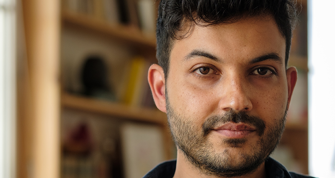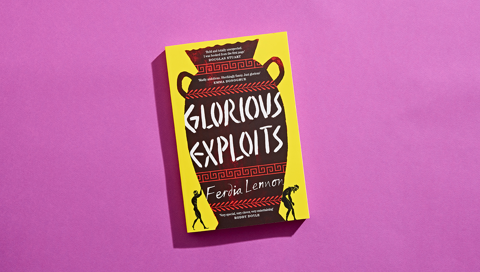Explore upcoming events

Festival month has arrived! But before the Festival officially kicks off, we want to introduce you to some of the participants who have travelled from near and far to discuss their books, writing and ideas with us. Throughout this Q&A series, get to know favourite and unfamiliar writers and consider the 2025 theme, In This Together.
Ferdia Lennon is an Irish writer whose Sunday Times bestselling debut Glorious Exploits is an original and brilliant story of war and art in ancient Sicily.
Your debut is steeped in rich history. How did you research and prepare to write Glorious Exploits?
My degree was in history and classical studies, so I was already familiar with the historical context. However, my main preparation was to steep myself in primary sources from the period. I read all the ancient Greek tragedies, comedies and philosophy I could get my hands on. I wanted to understand as much as I could about the mentality of the people living during that period, how they saw the world. Along with this, I travelled to Sicily and Greece. I visited Syracuse and the quarries, all of which I feel helped immensely when I sat down to write.
What’s on your TBR pile now?
I’m looking forward to David Szalay’s Flesh, Wendy Erskine’s The Benafactors and many more.
What is the first book you remember reading?
Lady Gregory’s Irish Myths and Legends and Hans Christian Andersen's Fairy Tales were both early and really important books for me.
Despite living in ancient Syracuse, the characters in Glorious Exploits have an offbeat Irish vernacular. What inspired this choice?
Part of it was just finding a new approach that would jolt the reader, but it was also natural for me as an Irish writer. I always had the sense that, although some people would see it as anachronistic, it was actually no more anachronistic than following the convention of having characters from the classical world sound like they just stepped out of Downton Abbey. Finally, Sicily was an island that had been colonised a few hundred years before my book was set, so an Irish vernacular was a way of conveying that colonial past and its relationship with the rest of the Greek world.
What book do you wish you could read for the first time again?
Arthur Conan Doyle’s Sherlock Holmes stories. They’re still a lot of fun, but it’s never quite the same when you know the ending of a detective story.
What do you hope readers take away from your work?
First and foremost, I hope they enjoy the book and have fun reading it. However, I also hope that it’s a meaningful experience and that it’s a novel that will make readers laugh but also move them.
What events at this year’s Festival are you looking forward to attending?
I am going to be making very good use of my festival pass. Frankly, there are loads: Maggie O'Farrell, Colm Tóibín, Jeanette Winterson’s events, to name but a few.
